1
How intelligent are jackdaws?
These small crows are highly intelligent and social, and easily pick up tricks and new skills in the wild as well as in captivity. Once a tame jackdaw was trained by some Italian thieves to steal money from cash machines but it’s more common to see them working out how to gain access to bird feeders!
Jackdaws can even identify individual humans, although we're not entirely sure how they do it.
Only a few animals are capable of this, with the others including other corvids like magpies, as well as chimpanzees and pigeons.
Photo © David Courtenay/Getty
2
Jackdaw vs crow
Jackdaws are the smallest member of the crow family (collectively known as corvids), which also includes ravens, crows, rooks, jays and magpies.
Like most of their cousins, jackdaws are just as much at home in farmland and woodland, as they are in urban landscapes. The latter is thanks to their adaptability and intelligence.
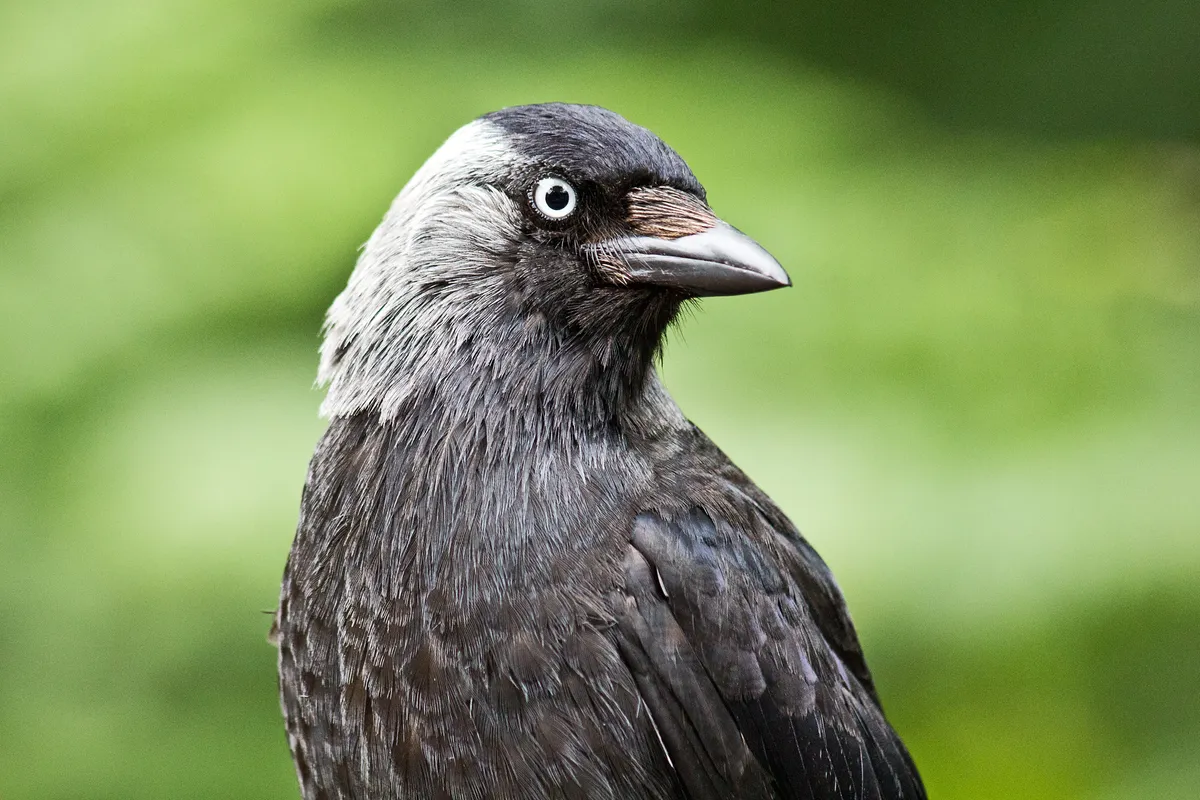
An easy way to identify jackdaws is by their light grey nape and pale white iris, which stand out against the black plumage. Juveniles, however, lack the grey nape and are born with blue-grey eyes. Their irises change to brown in the first winter and white once they gain their adult plumage. The jackdaw call is a simple ‘jack-jack’.
Carrion crows, on the other hand, are significantly bigger, black all over, and have brown irises. Crows are also often found alone or in pairs, whereas jackdaws are more gregarious and they usually live and move around in groups.
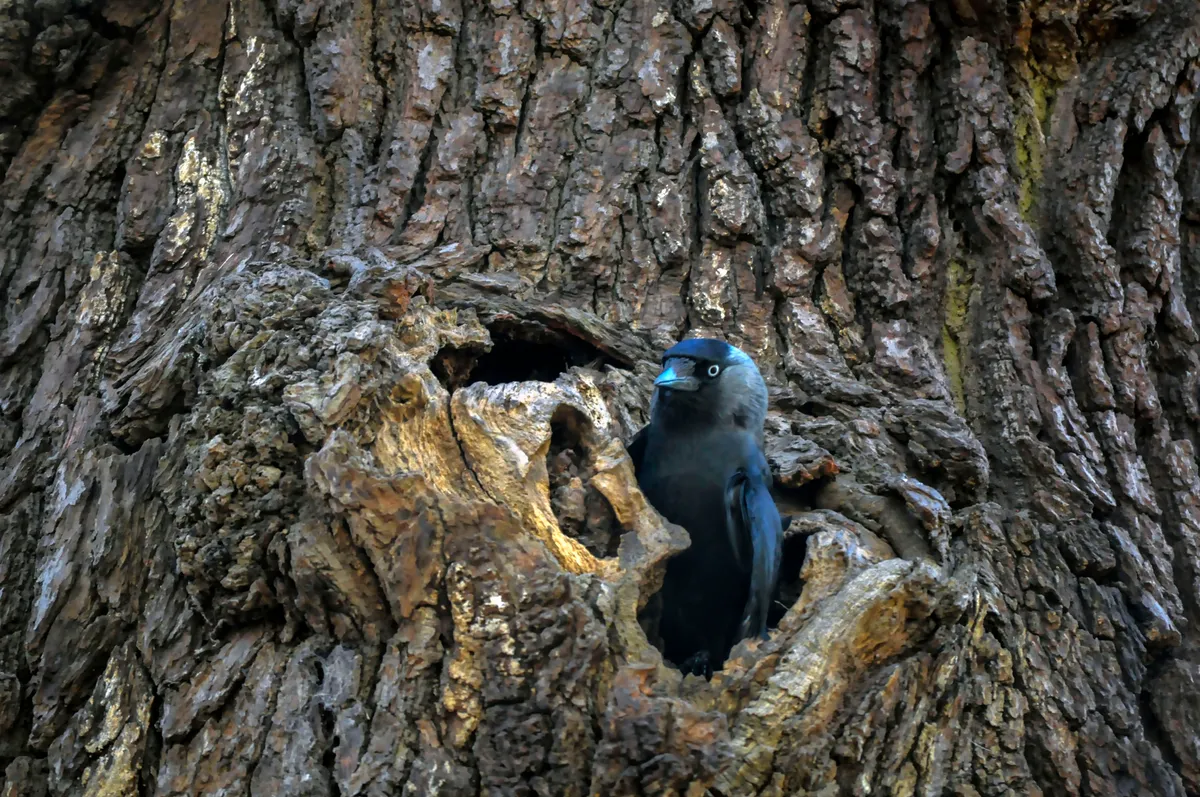
3
Where might you see jackdaw nests?
Jackdaws are colonial cavity nesters, and will use anything from a hole in a tree to a chimney. Jackdaw nests are usually constructed with sticks to form the outer section of the nest, and lined with wool or hair. You can encourage jackdaws to nest in your garden by putting up tawny owl boxes.
Jackdaw eggs are pale blue or blue-green and generally covered with darker speckles. A jackdaw nest will normally have 4 or 5 eggs, but they all hatch at different times, which means the youngest chick has a significantly lower chance of survival than the eldest.
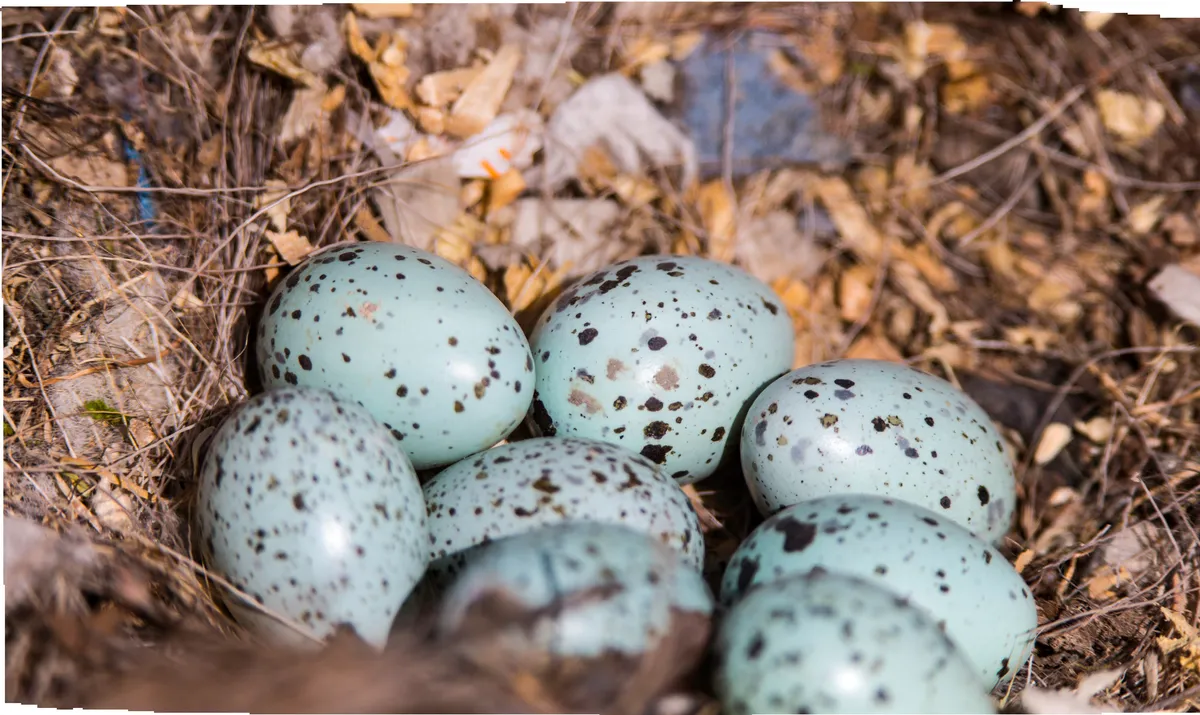
4
Do jackdaws mate for life?
Jackdaws form strong pair bonds with their mates and are renowned for their devotion towards their partner. Even if they suffer from a few years of unsuccessful breeding, they still stay together, potentially due to the fact that they have invested so much time and energy into trying to raise young together.
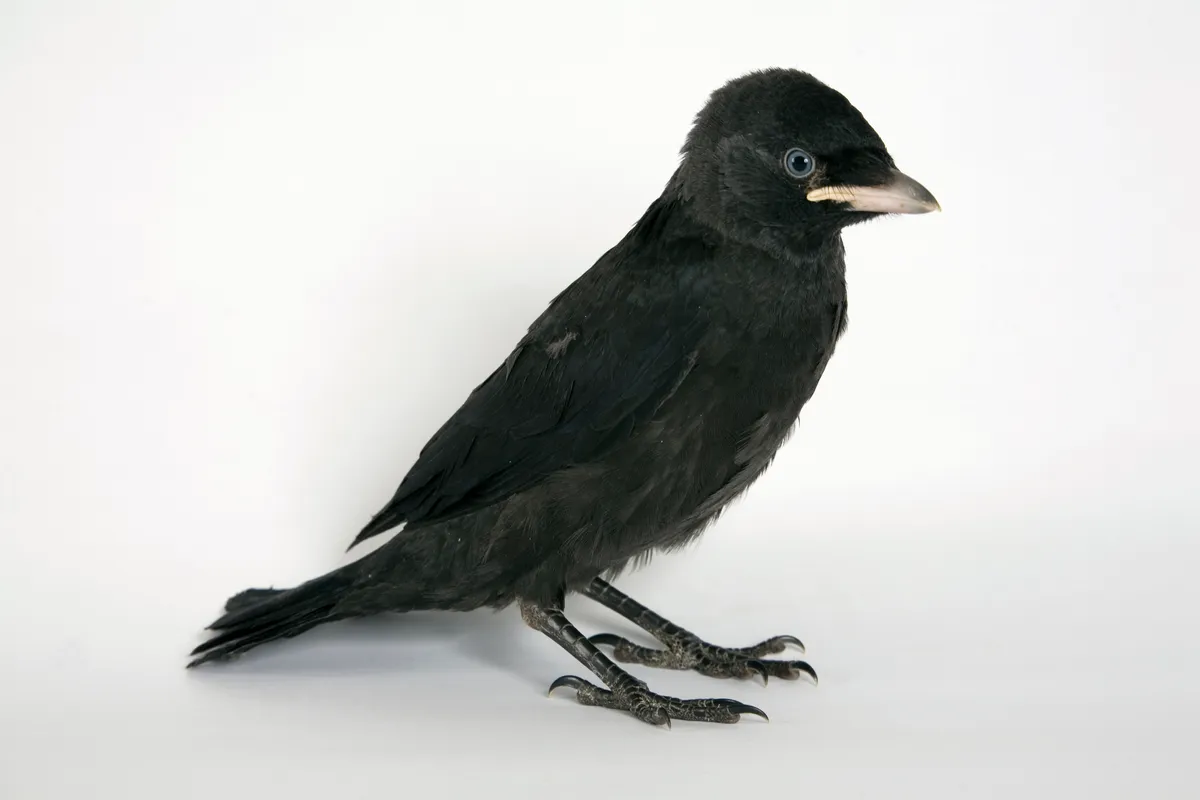
5
Jackdaws can go grey
It's not too unusual for some birds to start going grey in old age, but it's often not hugely noticeable because the greying is caused by changes to feather structure (so light is reflected differently) rather than by lack of pigment like in humans. Greying is more obvious in jackdaws than most other bird species because they've got mostly black plumage.
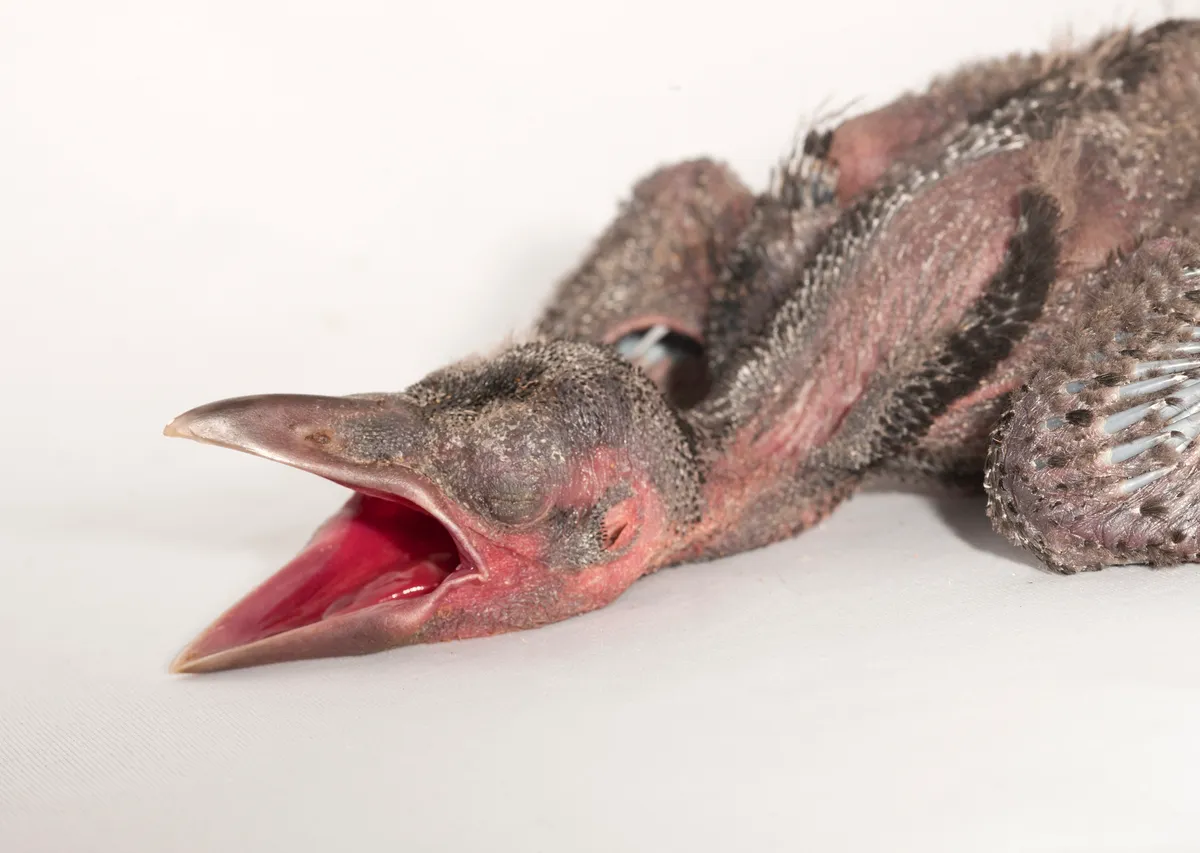
6
Do jackdaws live alone or in groups?
As well as breeding in colonies, jackdaws also roost and feed together. If one jackdaw finds a particularly good supply of food, it will regularly come back to the same area, sometimes encouraging other jackdaws to ‘tag’ along. These birds are often also seen feeding alongside rooks and carrion crows.
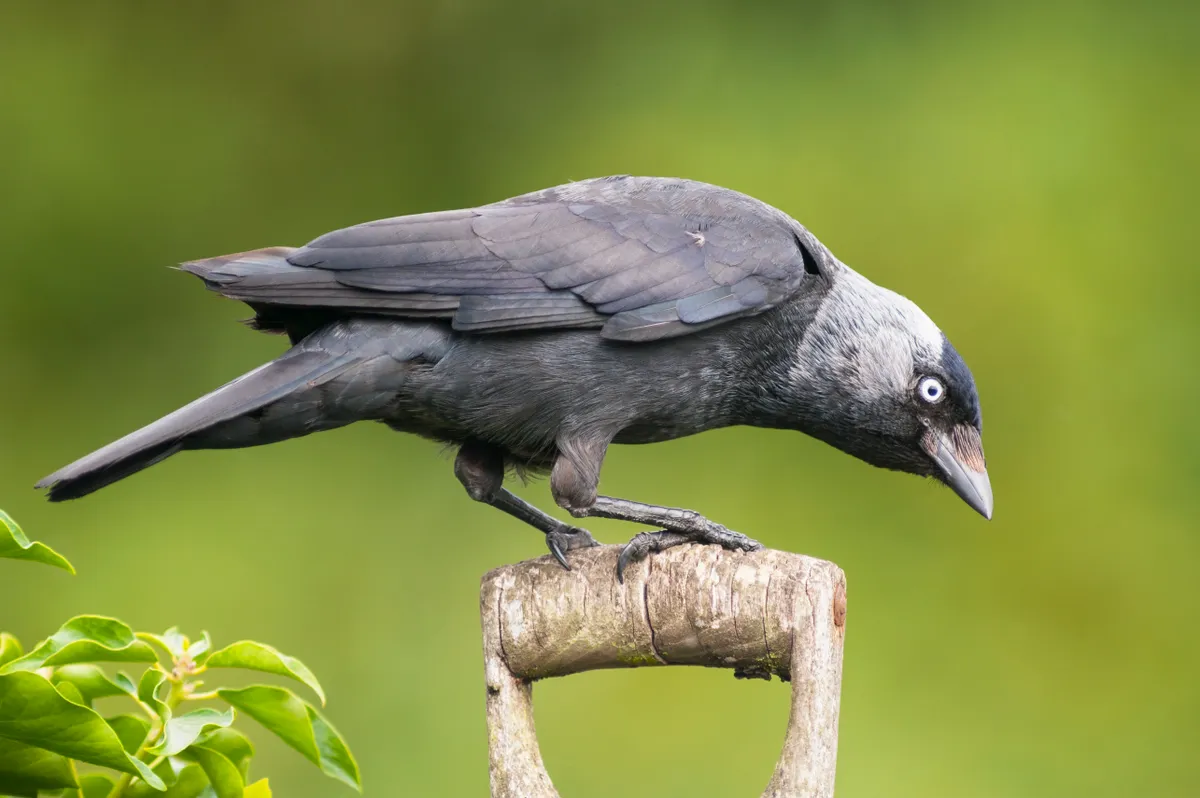
7
What do jackdaws eat?
Their diet is largely composed of seeds, fruit and invertebrates, but as Jackdaws are also carrion eaters, they will pick at road kill or even take other birds’ eggs. The jackdaw diet varies depending on their location, so near farms insects are important, but in urban and woodland areas seeds and fruit make up more of the diet.
